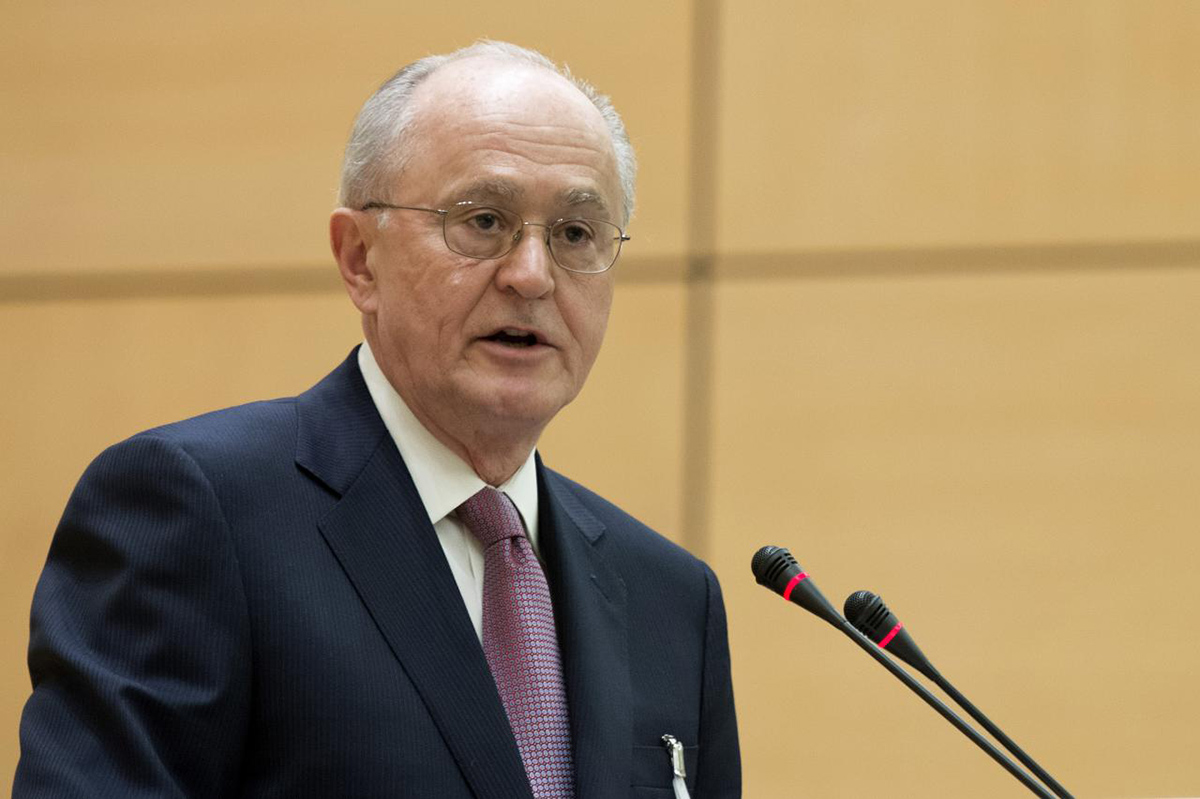Harvard Kennedy School Professor to Advise FIFA on Human Rights

Photo by U.N. Geneva on Flickr/Creative Commons
2015 wasn’t exactly a banner year for FIFA, what with all the covert arrests, indictments, and sweeping allegations of corruption—never mind the displacement in Rio de Janeiro for last year’s World Cup and the ongoing use of slave labor in Qatar, site of the 2022 tourney.
To better respond to these gross human rights abuses, soccer’s international governing body has tapped Harvard Kennedy School professor and former United Nations official John Ruggie, who will draft a set of recommendations for applying the U.N.’s “Guiding Principles on Business and Human Rights“ to FIFA’s policies and practices.
Ruggie will have access to FIFA documents and personnel in order to conduct a comprehensive review of the troubled body. He publish a report in March 2016 based on his findings, which FIFA will review and reach a decision on its implementation.
“FIFA’s global reach means that this initiative has the potential to make a difference where it matters most: in the daily lives of people,” Ruggie said in a release. “As with any such process, I fully recognize that there will be challenges and complex change takes time. However, this has the potential to set the bar for other global sports organizations, and place respect for human rights front and center for a broad range of entities involved in global sporting events.”
Ruggie, who was approached by FIFA in August, penned “Guiding Principles” while serving as Special Representative of the U.N. Secretary-General for Business and Human Rights from 2005 until 2011. It was been called “the global authoritative standard, providing a blueprint for the steps all states and businesses should take to uphold human rights” by U.N. High Commissioner for Human Rights Zeid Ra’ad Al Hussein.
“This is another important step in our ongoing reform process,” acting FIFA President Issa Hayatou said. “I am proud to see that FIFA is taking the lead among international sports organizations on such an important topic. Football and FIFA have an important role to play in this field; respect for human rights has to be at the core of our sport.”

